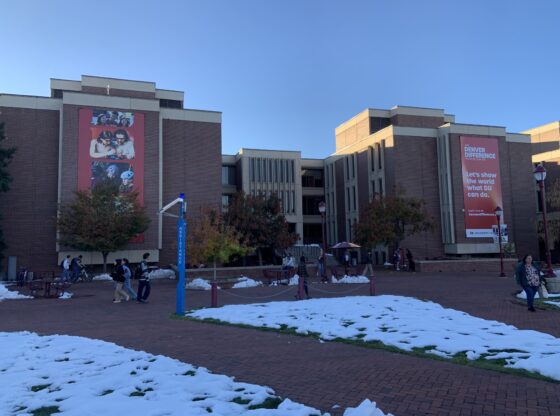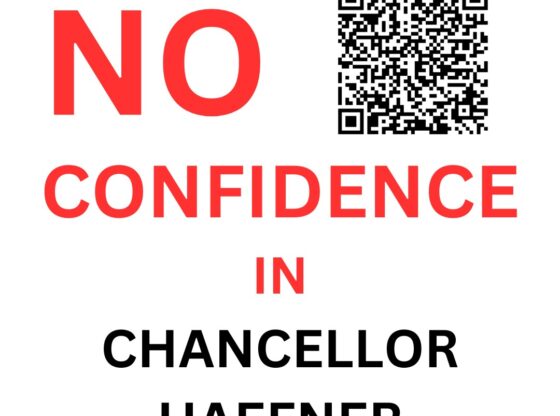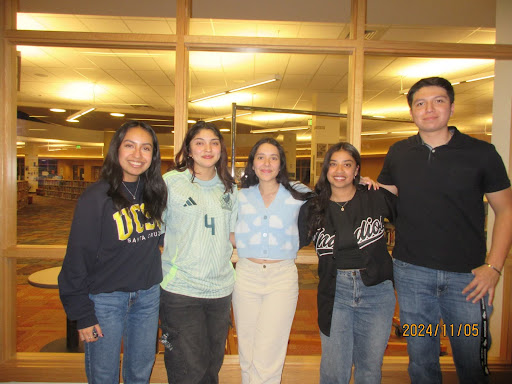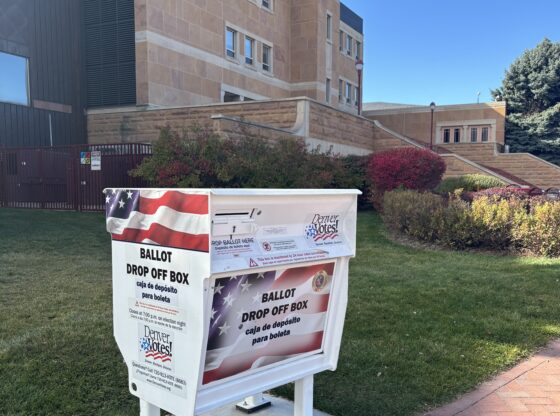DEAR EDITOR,
I’d like to make a response to an article in the Clarion a couple weeks ago about the cutting down of trees, and how it was portrayed as entire forests being obliterated. Here’s an opinion from someone whose family is pretty knowledgeable on this topic.
My father is a U.S. Forest Service project leader for the office at Sixth and Simms in Lakewood. His wife, my stepmother, is a district manager at another U.S.Forest Service office.
Both of them, along with my 23-year-old brother, who works in their district during summers away from college, have fought on the frontlines against the numerous forest fires that have plagued Colorado in the past few years. My father was even interviewed by a television reporter during the Hayman fire. For my part, I have volunteered in their “tree-thinning” program during the Christmas season when the Forest Service sells permits to citizens to come up and cut down their own Christmas tree.
Let me assure the readers here and now, the Forest Service is not endorsing that forests should be chopped down. I’m sure my father would be available for comment if a reporter wanted to obtain an interview from someone directly involved, and, while he does not agree with some of Bush’s policies regarding the environment, he does support tree-thinning.
I think maybe everyone against this program is envisioning a bunch of Paul Bunyans working their way methodically through the national forests with huge chainsaws, blazing a path of barren destruction through our nation.
I believe the only tool the Forest Service allows citizens to have during the tree-thinning is small handsaws. As a matter of policy, people are only allowed to chop down trees with a six-inch or less diameter — which is not much. The “choppers” are also required to cut their tree down so as to leave a stump of only six inches or less.
They are not allowed to “top” trees, which entails someone climbing to the summit of a much larger tree to obtain the top for their joyous yuletide and decorating.
Lastly, each tree, before leaving the area, is checked to make sure the individual’s purchased permit is affixed, and that they aren’t making off with more trees than they were licensed to take.
While this Christmas tree cutting program does involve cutting down existing trees, we’re talking about trees that, at most, reach 10-12 feet in height.
Compare that to the majority of the forest, which consists of trees exceeding 20 feet in height.
The Forest Service is letting the public assist in removing what is basically kindling for future decimating fires.
Again, this is just one small aspect of the tree-thinning program that I have personally been involved with. However, I have faith and personal knowledge from my family, who happen to have expertise in this area, that the United States is not hell-bound for barrenness by a bunch of Paul Bunyans.
Rachel Maxwell
————————————————————————————-
DEAR EDITOR,
Is there discrimination against certain opinions in the higher education environment? Will standardized testing lead to improved schools and improved students? The answers to these questions and more were discussed at the second meeting of The Forum, DU’s new organization dedicated to ideas and discussion, held Feb. 18.
The discussion addressed two topics related to educational reform, the Academic Bill of Rights and the Bush Administration’s “No Child Left Behind Act.”
The Academic Bill of Rights is a document that has been proposed to correct perceived political bias in the higher educational system by guaranteeing a plurality of methodologies and perspectives in the classroom. A general consensus was reached that the document itself is a reasonable solution to correct potential biases in colleges and universities, but the legislation of this document at the state and federal levels was still a point of contention.
Codifying this document into law could provide the government with a very powerful means of oversight that could homogenize campuses across the nation and neutralize political discourse in the classroom.
On the other hand, legislation could ensure that academic standards of fairness and impartiality are enforced by professors without direct intervention by the government.
The discussion on the “No Child Left Behind Act” focused on the pros and cons of the system of measuring improvement in public schools, as well as how federal money is allocated to education. Concerns were expressed regarding the federal government’s ability to make well-informed decisions about local educational issues, because of their distance from individual school districts.
The group disagreed over the value of standardized tests as a sole means of evaluating performance. Though there was no consensus on either of these topics, a spirited debate brought many new ideas to light.
The next meeting of The Forum will be March 3. For more information on the topics that will be discussed, please see our Web site at http://www.du.edu/orgs/forum/
————————————————————————————-
DEAR EDITOR,
There was a recent article about the appointment of Judge Pickering and how the Bush administration is not acting in a bi-partisan manner, a charge akin to the “pot calling the kettle black.”
This president has done everything possible from the inception of his presidency to be bi-partisan, but the Democrats do what they do best, anything and everything to preserve their former stature. They had no problem in their 40 years of unlimited congressional power, bending the rules in their favor, time and time again.
A willing press always called the majority Democratic Congress, “Congress.”
After it became a Republican majority, now it is the “Republican-controlled Congress.”
Republicans favor judges who do not legislate from the bench. This whole idea of blocking judges began when Democratic politicians blocked the approval of Judge Bork to the Supreme Court during the Reagan years.
The reality is that most judges are approved, but if one political side is going to find and/or make rules to support its wishes, then don’t cry when the other side does the same.
It’s become obvious that the Democratic Party loves to “dish it out,” but equally obvious that they have trouble “taking it.”
Rick Stark Class of 1974











